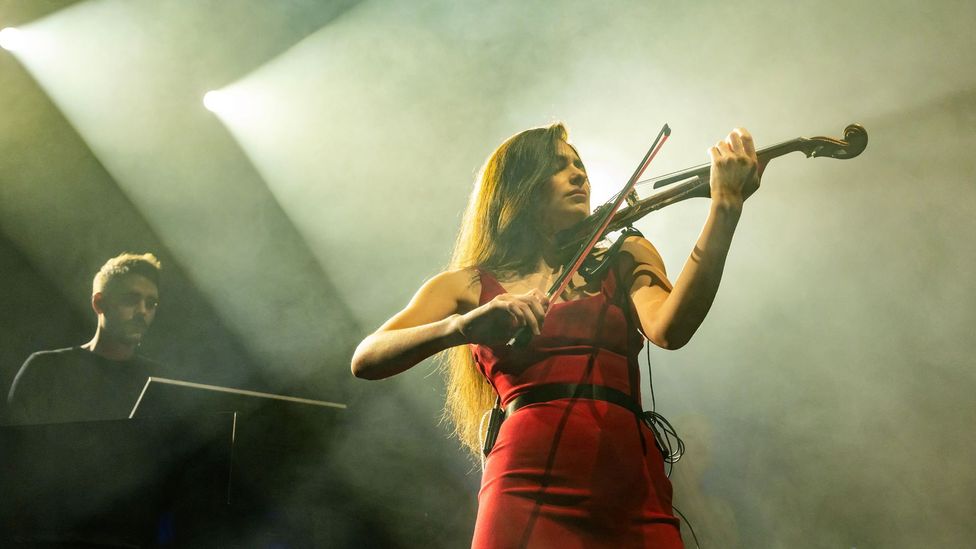A radical new wave of artists are sweeping the previously elite world of classical music – with a little help from Squid Game, Dark Academia and fashion. Daisy Woodward explores how classical got cool.
I
If asked to guess what under 25-year-olds are listening to, it’s unlikely that many of us would land upon orchestral music. And yet a survey published in December 2022 by the Royal Philharmonic Orchestra (RPO) found that 74% of UK residents aged under 25 were likely to be tuning into just that at Christmas-time, compared with a mere 46% of people aged 55 or more. These figures reflect not only the RPO’s broader finding that under 35-year-olds are more likely to listen to orchestral music than their parents, but also the widespread surge in popularity of classical music in general, particularly among younger generations.
More like this:
– The radical trend millennials love
– The forgotten Soviet genius of music
– Have film and TV got Gen Z all wrong?
There are plenty of reasons for this, from the playlist culture spawned by streaming platforms that make it easy for listeners to discover new artists and types of music to fit their mood, to the solace it provided during the pandemic, not to mention the profusion of classical music in pop culture hits like Squid Game. But perhaps highest on the list is the global wave of Gen Z and young millennial classical artists who are finding new ways to be seen and heard, and – just as vitally – new means of modernising what has long been branded music’s most elite and stuffy genre.
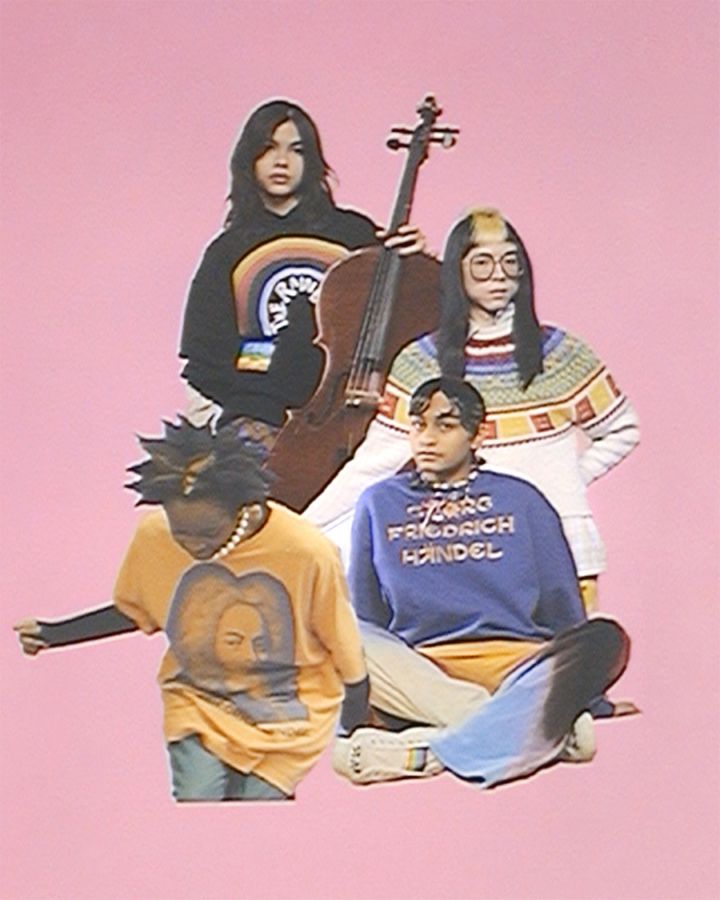
Fashion brand Acne Studios’ younger sub-label Face recently created composer-themed sweaters and bags (Credit: Acne Studios/ Face)
Unsurprisingly, social media has played a huge part in this, as a quick search of the popular TikTok hashtag “classictok” (currently at 53.8 million views) attests. There, as well as on Instagram, young classical artists have been making use of the digital realm’s democratic potential to lift the heavy velvet curtains on their art form, presenting classical music and its storied history in ways that are accessible, unintimidating and, most importantly, fun.
For French violinist Esther Abrami – who has more than 250,000 followers on Instagram, more than 380,000 on TikTok, and was the first classical musician to be nominated in the Social Media Superstar category at the Global Awards – the journey to social media fame stemmed from a desire to share her passion more widely. “I was studying at a top institution and most of the time I was practising for exams, so the whole joy of sharing was taken away. Then, at the very few concerts I did play, there was a very specific type of audience that wasn’t very diverse,” Abrami tells BBC Culture.
She noticed that a handful of classical musicians had taken to Instagram to broaden their own reach, and decided to do the same. “I started posting a few things, and was stunned by the reaction that I got. Suddenly you have people from around the world listening to you and telling you it brightens their day to watch you playing the violin,” she enthuses. “It opened this door to a completely new world.”
Nigerian-US baritone and lifelong hip-hop fan Babatunde Akinboboye enjoyed a similarly swift and surprising rise to social media fame when he posted a video of himself singing Rossini’s renowned aria Largo al factotum over the top of Kendrick Lamar’s track Humble. “I was in my car and I realised that the two pieces worked together musically, so I started singing on top of the beat,” he tells BBC Culture. He documented the moment on his phone and posted the video on his personal Facebook account, guessing that his friends would enjoy it more than his opera peers. “But I went to sleep, woke up the next morning, and it had expanded to my opera network, and far beyond that,” he laughs, explaining that within two days, his self-dubbed brand of “hip-hopera” had caught the attention of The Ellen Show, America’s Got Talent and Time magazine.
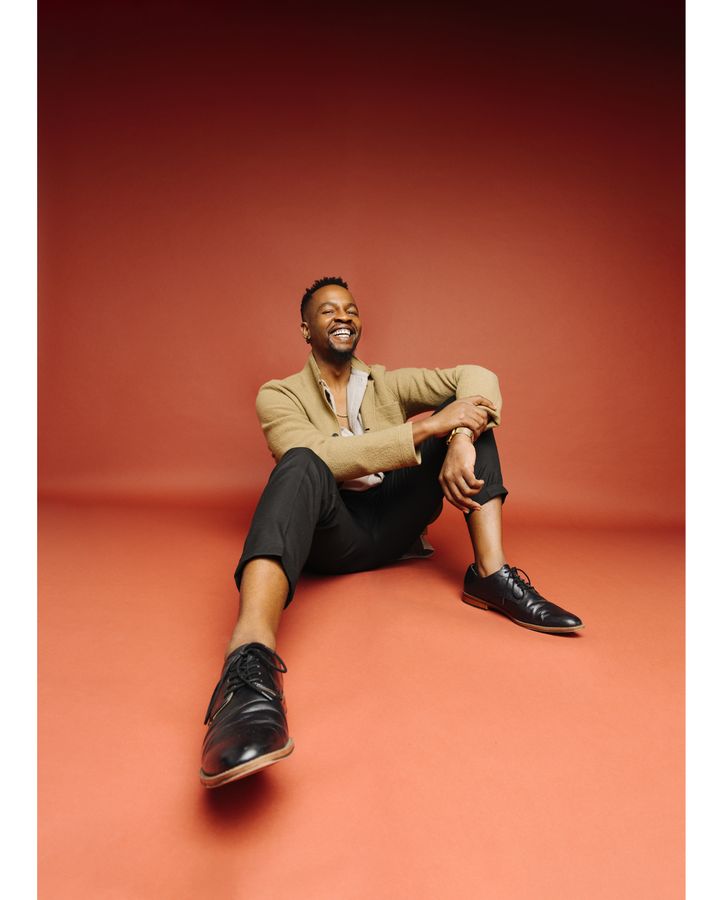
Nigerian-US baritone Babatunde Akinboboye sings “hip-hopera” – he initially became known for his rendition of Rossini blended with Kendrick Lamar (Credit: J Demetrie)
Both Abrami and Akinboboye came to classical music in their teens, late by conventional standards, and cultivated their passion for the genre independently. This remains a driving factor in their desire to reach new audiences, which they’ve achieved on an impressive scale, largely just by being themselves. “I ended up becoming an opera influencer by sharing the parts of me I felt comfortable sharing, which is a lot,” says Akinboboye, whose playful hip-hopera and opera videos and posts – taking viewers behind the scenes of a world still shrouded in mystery – have garnered him some 688,000 TikTok followers. “It’s a lot about how I relate to opera; my musical background was from hip-hop, but I still found a relationship with opera and that resonated with people,” he explains. “Almost every day I get a different message saying, ‘I went to my first opera today’. I think it’s because they’re seeing someone they feel comfortable or familiar with.”
‘Complex and profound’
Abrami, a similarly enthusiastic content creator, agrees: “I think putting the face of somebody not so far away from them to the genre is a big thing. That’s what I’m trying to do, to reach different types of people and create bridges, to show them that this music can really move you. It’s complex and profound and yes, it might take a bit of time to understand but once you do, it’s amazing.”
British concert pianist Harriet Stubbs is another avid proponent of classical music for modern audiences who has been finding her own ways of drawing in new listeners. During lockdown, the musician, who usually splits her time between London and New York, performed multiple 20-minute concerts from her ground-floor flat in West Kensington, opening the windows and using an amplifier to reach listeners outside. “I gave 250 concerts,” Stubbs, who was awarded a British Empire Medal by the Queen for this mood-boosting act of service, tells BBC Culture. “I did a range of repertoire from my upcoming album, and also things like All By Myself, which I chose ironically for that audience. And the thing is, people who thought they didn’t care for classical music came back every day because of the power of that music.”
The fusion of classical music with other genres is a major facet of Stubbs’s practice and, indeed, that of many others among the new generation of classical artists (see also the React to the K YouTube channel, where classical artists frequently reimagine K-pop songs with ingenious results, or Kris Bowers’ brilliant orchestral arrangements of modern pop songs for the much-buzzed-about Bridgerton soundtrack). Stubbs’s innovative first album, Heaven & Hell: The Doors of Perception (2018), was inspired by William Blake and features musical icon Marianne Faithfull. “I always wanted to tie rock’n’roll and classical music together and put them in the same space, supported by literature and philosophy and other disciplines,” she explains, adding that her next album, which she’s making with pianist and former Bowie collaborator Mike Garson, will be a “Bowie meets Rachmaninoff” affair.
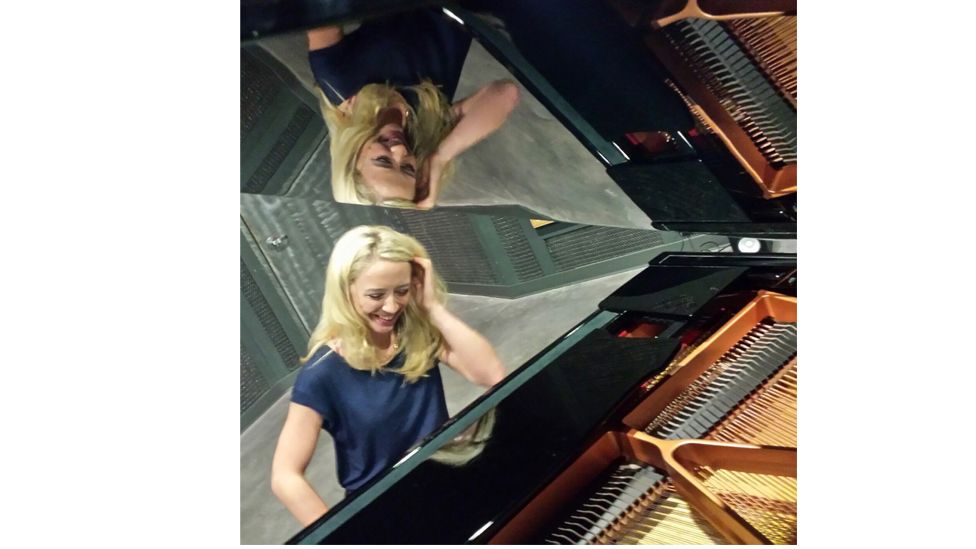
Concert pianist Harriet Stubbs has collaborated with Marianne Faithfull, and is currently working on a “Bowie meets Rachmaninoff” album (Credit: Russ Titelman)
Interestingly, the current swell of enthusiasm for classical music has branched out to become as much of an aesthetic movement as it is a musical one. Digital microtrends Dark Academia and Light Academia – dedicated as they are to the romanticisation of a passion for art and knowledge through imagery – both make rousing use of classical music in order to create the desired ambience. Ascendant Polish countertenor Jakub Józef Orliński, meanwhile, uses atmospheric visuals as a powerful means of contemporising the baroque experience. Depressed by the lack of funding for music video production in the classical realm, he drummed up private sponsorship to make a 21-minute movie to accompany his 2021 rendition of Vivaldi’s Stabat Mater. The resulting film conjures a compelling and suitably brutal scenario for the haunting 18th-century hymn, which The New York Times describes as “resembling a Polish remake of The Sopranos”.
“I’m really interested in storytelling. I always build an entire concept for my albums – the narrative, the photography, the videos,” Orliński tells BBC Culture. “I think now there is this whole new generation of people who really want to add to what classical music can be, to go beyond the singing and be challenged. You just have to know that the end product will be good, and that what you’re doing will serve the story,” he adds. This is certainly something Orliński has achieved in his own career: an accomplished sportsman and breakdancer, he wowed critics with his 2022 Royal Opera House debut, which found him pole-dancing in a spangled dress as Didymus in Katie Mitchell’s production of Handel’s Theodora. Other recent projects have included recording baroque tracks for forthcoming video games which, he says, was “an incredible experience” and is something he’s being asked to do more and more frequently, as the Metaverse beckons. “Sometimes you need classical music to touch the strings of somebody’s soul – a pop song won’t work.”
Classical music’s ongoing and often powerful intersection with pop culture is being foregrounded as part of the burgeoning interest in the genre, both inside and outside its famously guarded gates. The all-teen members of the UK’s National Youth Orchestra have just completed a mini tour that included a performance of Richard Strauss’s Also Sprach Zarathustra, replete with its opening symphonic sunrise eternalised by Stanley Kubrick in 2001: A Space Odyssey. Last August saw the BBC Proms launch its first gaming-themed programme whereby the Royal Philharmonic Orchestra took on some of the best-loved songs in video game history. While the recent autumn/winter collection from Acne Studios’ younger sub-label Face offered up one of the most direct sartorial tributes to classical music to date, presenting crew-neck sweaters, T-shirts and tote bags embellished with the faces of Handel, Mozart and Bach in celebration of “the idea that a passion for classical music is the most left-field move imaginable for a modern-day teenager”.
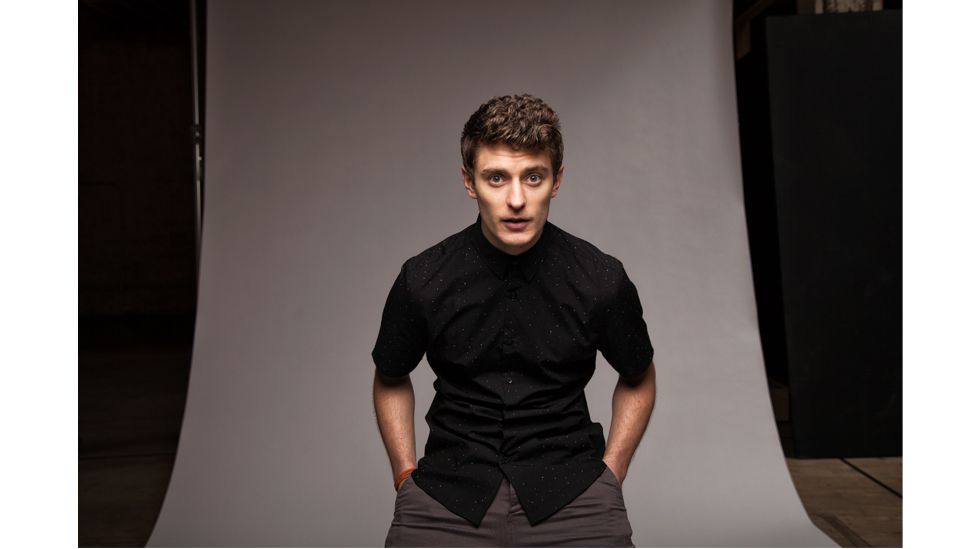
Polish countertenor Jakub Józef Orliński wowed critics with his performance as Didymus in Handel’s Theodora, which included a pole-dance (Credit: Michael Sharkey)
Orliński agrees that classical music has achieved an “almost hipstery” status of late. “It’s cool to go to the opera, to know something, and that’s because there are a lot of young artists delivering music on the highest level, while making it very entertaining,” he enthuses. There is, he observes, a revived interest in classical music personalities such as Maria Callas and Pavarotti, as well as “people like Yuja Wang” who are selling out concert halls, all of which he feels bodes well for the art form. “We have a long way to go to grow as much as other genres of music, but we’re moving forward.” Akinboboye, too, is tentatively hopeful. “I think opera is definitely being a lot more bold, and I hope that it continues because I think we can catch up,” he concludes. “[Classical music needs to] be brave, to do the scary thing. And it’ll work out, because audiences are ready.”
If you would like to comment on this story or anything else you have seen on BBC Culture, head over to our Facebook page or message us on Twitter.
And if you liked this story, sign up for the weekly bbc.com features newsletter, called The Essential List. A handpicked selection of stories from BBC Future, Culture, Worklife and Travel, delivered to your inbox every Friday.
